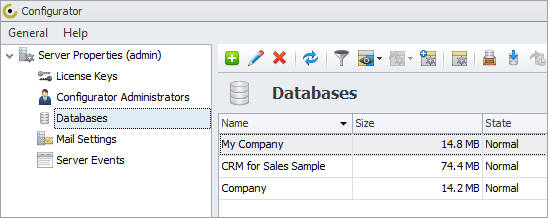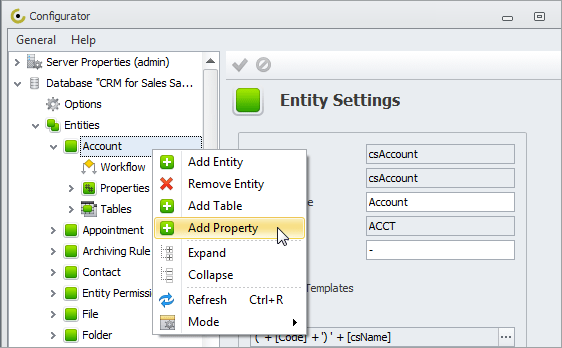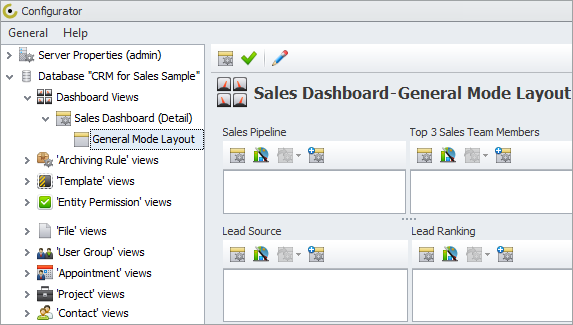Choosing Database Software: Oracle Alternatives for Small Business
Oracle provides feature-rich database management systems for businesses of any kind. However, it doesn't actually mean that any business can benefit from Oracle database. Large and midsize organizations often choose between Oracle database systems and SAP HANA or look at SaaS applications, such as Salesforce.com. For small companies all of the mentioned solutions are not ideal since each one requires a great deal of investment. For such companies Oracle alternative could be a better choice.
SAP HANA - Great Alternative for Oracle Customers
When it comes to comparing Oracle to other database systems, the first thing appearing in mind is SAP HANA. SAP announced HANA, the in-memory database packaged as a platform, as the way to manage and process data at lightning speeds. This technology enables users to take advantage of transformative computer processing power. To put it simply, users are enabled to cut hours-long analyses to minutes.
More importantly, HANA can serve as a single enterprise database platform for data analytics and management. This option lets customers cut out Oracle database (as well as IMB DB2 and MS SQL Server) and run SAP applications without additional hardware, related management software, and extra cost. HANA seems to be the choice of IT departments within their zone of comfort. And perhaps only conservative Oracle customers won't give HANA a try in the short term.
The Growth of SaaS and Why Oracle Partners with Saleforce.com
When comparing Oracle database system to SaaS (Software as a Service) applications, it seems that such applications are taking the lead and Oracle has nothing to do with it. Why? Many analysts tend to agree that the growth of SaaS applications is caused by user choice. For example: when you subscribe to Salesforce.com, you get a ready-to-use solution, without a need to buy a database, middleware or hardware. Naturally, this option fits you best, and most likely you won't then switch to Oracle database, even if it's in the cloud.
SaaS applications overcome Oracle database and become true Oracle alternative for many customers. Oracle understands this tendency and looks for a strategic way to change the situation for better. As a result, in June 2013 the company announces a 9-year strategic partnership with Salesforce.com. Now Salesforce.com follows the standards of Oracle database and Oracle Java Middleware. In return, Oracle commits to integrating its Fusion HCM and Financial Cloud with Salesforce.com's platform and applications.
Both partners will gain from their cooperation. Oracle earns good chances to maintain its market share and strengthen its leadership. For Salesforce.com there is the sign of revenue growth - many Oracle client are ripe to move from Oracle's on-premises applications to Financial Cloud managed by Salesforce.com's platform.
Oracle Database and Small Business
Nevertheless, neither Orcale-Salesforce.com nor SAP HANA could be the best choice for small businesses. Why? There are three reasons to consider: budget, complexity and customization.
Budget - Look for Cost Effective Oracle Alternative
Oracle database deployment is feasible and cost effective only when you need large database systems for managing your business. Considering the amount of financial resources, man hours, and hardware needed to deploy Oracle database, it's not ideal for small or even midsize businesses to use this system, especially when there are other feasible options that can be more cost effective and attractive. CentriQS can be the right solution for small companies. It is feasible and cost effective. It features Configurator that provides powerful functionality for database management.

Complexity Causes Longer Learning Curve
Even the most technically sound IT specialists find Oracle database challenging. Oracle database is notorious for its complexity, which results in a longer time-to-implement cycle. You don't want to deploy a database system that has a huge learning curve, do you? For small businesses, database complexity is almost a dead end. They can't afford spending dozens of man hours on system implementation. Therefore, Oracle isn't the ideal choice when either the personnel aren't highly technically skilled or you want an easy-to-use database with basic features.
That's why, for small businesses it's reasonable to look for Oracle alternatives and try to find an affordable database system that requires a shorter time-to-implement cycle. An example is CentriQS. This database software is simpler than Oracle - you don't have to spend thousands of dollars and dozens of man hours to deploy CentriQS database. In a relatively short period you can implement the system and configure it to your business needs.

Customization - Tailor Database without External Consultants
Oracle database customization is both expensive and complicated. Typically, companies are unable to customize the database without involving external consultants and integrators. Most small businesses can afford Oracle customization. They would rather go and try CentriQS or similar Oracle alternative. You can setup and customize CentriQS database to your specific needs without being an IT professional and without any third-party consultants.

Next steps
{
Check out CentriQS FEATURES & SCREENSHOTS
Watch 7-minute CentriQS VIDEO OVERVIEW
Learn how to use CentriQS in KNOWLEDGE BASE
DOWNLOAD CentriQS 30-day Free Trial Version
CONTACT US to get help with CentriQS Database Design & Configuration